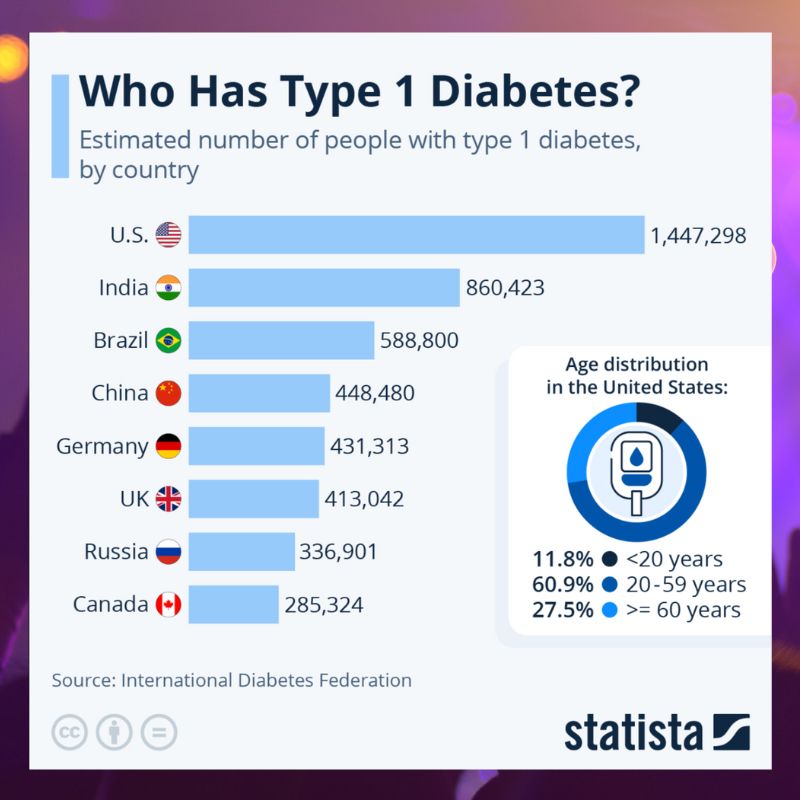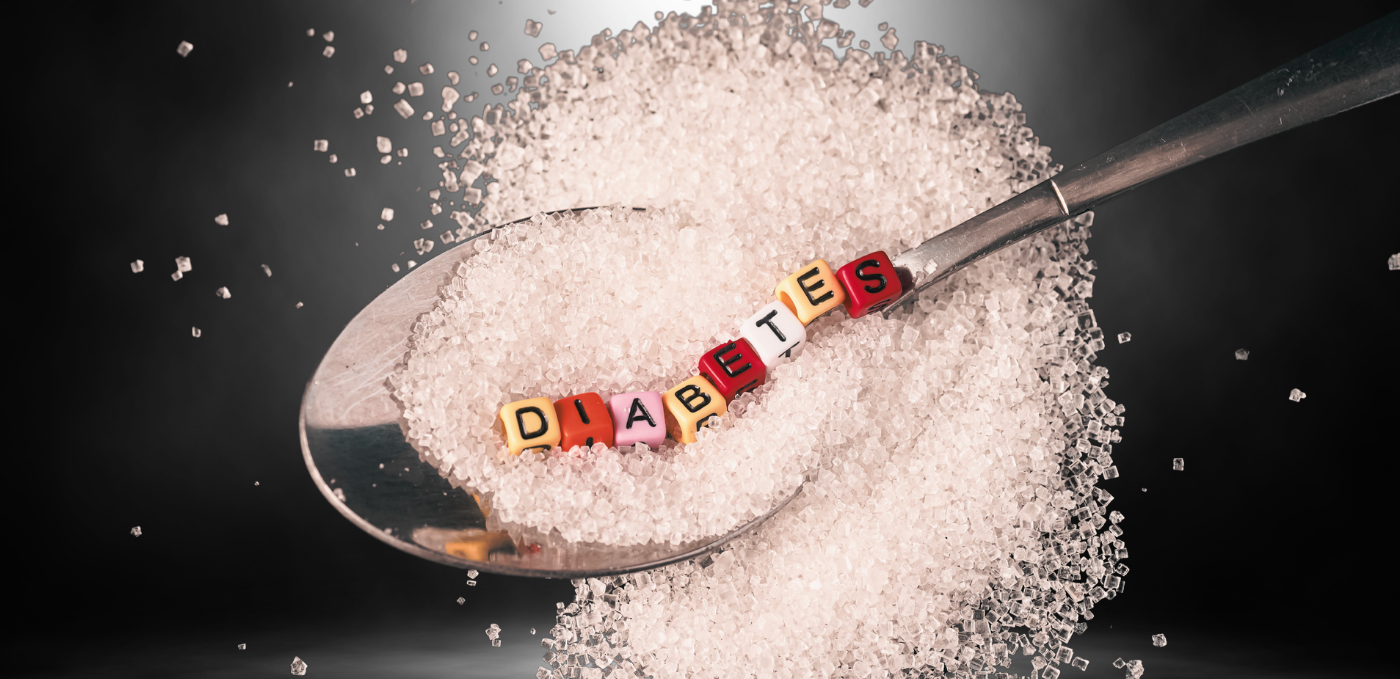Given the complexity of their duties, is it high time for club security to reassess how they interact with individuals managing type 1 diabetes?
Around a year ago, I was invited to my first dance music industry event, which was an invite received on the back of my writing for publications such as Attack. I came away from the night angry and embarrassed, having been treated unjustly by a member of security because I have type 1 diabetes.
This was the first time I had ever experienced anything like this, but I wanted to find out if others with type 1 diabetes had experienced similar things, so I reached out to some people living with the condition, and I was shocked by what I found out.
I spoke with a range of people living with type 1 diabetes, including DJs, producers, clubgoers, and doctors. They shared their personal experiences of attending dance music events, and some of their interactions with security. We also discussed some ways security at festivals and club nights could be improved for people with type 1 diabetes and other long-term health conditions.
Type 1 diabetes is a life-threatening condition that affects almost every facet of life
First, some background on type 1 diabetes, how it’s treated, and the dangers posed if not treated properly.
A person with type 1 diabetes is unable to produce insulin and so cannot process carbohydrates. Whenever a type 1 diabetic eats or drinks anything with carbohydrates in it, they have to take insulin—often through an injection, although many diabetics use pumps that are permanently attached to the body—to compensate for the food.
If their blood sugar goes low, a person with type 1 diabetes has to eat or drink something sugary such as sweets or fruit juice.
If left untreated for even a short period of time, low blood sugar can result in feeling weak, mental confusion, seizures, and unconsciousness.
High blood sugar that isn’t treated over a long period can result in permanent nerve damage, loss of sight and life-threatening conditions such as diabetic ketoacidosis.
As a result, type 1 diabetics must carry with them at all times:
- Either insulin and needles or an insulin pump
- Sugary food or drink
- A glucose monitor used to test their blood sugar levels.
Therefore, when security at a club night took my insulin from me, it could have had serious consequences.

I had life-saving medication confiscated from me by security
Before I describe what happened to me, I would like first to say that the vast majority of security staff I have encountered have treated me and my type 1 diabetes with respect – but even occasional events like the one I describe below are unacceptable.
At this club night, the head of security would not let me in with my insulin pen because, according to him, I could stab someone with it.
This is not something I have ever experienced before. The security guard would not listen to me when I explained I needed to carry it with me to take it if I ate, drank, or if my blood sugar simply rose of its own accord.
He confiscated my insulin from me, put it in a latex glove in the pocket of a backpack in a locked room, and told me if I needed to take my insulin, I would have to come and find him in what was an incredibly busy club.
There was no procedure or formality, it was as if he was making everything up on the spot.
He also treated me like I was trying to smuggle something illicit into the club. I felt humiliated and powerless. There was no sympathy for the stress I clearly felt around not being with my insulin or the potential health consequences. In addition, when I tried to argue my case for keeping my insulin on me, I was shut down and treated like a problem.
I essentially had to choose between having my insulin on me or attending the event, which I had traveled for two hours on a weeknight to attend.
I remember the first time I went clubbing, maybe about a month after I'd been diagnosed, the security guard opened up my bag, opened up my insulin, and literally just chucked it on the floor
Many individuals with type 1 diabetes have shared similar stories
London-based LUMA was diagnosed with type 1 diabetes aged 22, and so had already been clubbing and DJing for several years without the condition. “I remember being really anxious […] thinking what’s it gonna be like when I go into a club.
“I remember the first time I went clubbing, maybe about a month after I’d been diagnosed, the security guard opened up my bag, opened up my insulin, and literally just chucked it on the floor.
“She took out my chocolate, said you can’t have that and chucked it on the floor. I also had a carton of orange juice and she chucked that on the floor and said you aren’t allowed any of these things.
“She was saying: ‘If you need something sugary you can just go to the bar. Someone at the bar will be able to give you something.’ So I was like: ‘But if I need something quickly I can’t wait for a bar queue.’”
When someone with type 1 diabetes has low blood sugar, they need to eat sugar immediately or they risk their blood sugar levels dropping even lower and potentially falling unconscious. Waiting in a busy bar queue at a club could take a dangerously long time.
Joe Yapp is a doctor and dance music fan. He had a difficult experience with security at a club in Manchester.
On the door, security was going through his things: “He found my insulin pens, blood testing strips and some Skittles. He started going through the Skittles to make sure they weren’t something else.
“He then stopped me and said ‘You shouldn’t be going into this club if you’re diabetic, you’re going to put yourself at risk. You’re going to be a headline in the Mancunian news.’ […] it was obviously quite excluding, I want to be able to do what I want to do.”
As long as a person with type 1 diabetes is sensible and manages their illness well, it is safe for them to drink and go to dance music events. Hence, statements like the one made by this security guard are false, insulting, and exclusionary.
This type of interaction with security can increase the anxiety for type 1 diabetics when attending music events, a situation that is already stressful when managing the condition. Personally, I now find going through security a very unpleasant experience. I’m always on edge and ready to explain or defend myself if needed. When asked if Joe Yapp feels the same:
“I think at the time, it probably did make me more anxious about going out and more anxious about going to that club, certainly.”

The best solution would be some kind of national standard around medication at music events or for clubs
Improving understanding of health conditions and medications is crucial for informed decision-making
As someone with type 1 diabetes, I am constantly making decisions and calculations based on my blood sugar, the food I eat, exercise, alcohol, and many other factors. Every decision I make carries with it anxiety and the very real possibility of serious health consequences. I don’t need uninformed staff members at clubs to exacerbate this struggle by making decisions about my health condition and confiscating essential medication.
I’m not asking everyone to have an in-depth understanding of type 1 diabetes, but I am asking security—who are there for the safety of clubgoers—to have a basic level of respect for punters with medical conditions and at least a surface-level knowledge of health conditions that they might encounter at work and the medication required to treat those conditions.
I asked LUMA how things could be changed for the better: “I think that all venue staff having more knowledge and educating the wider population would help, and thinking about how we can ensure diabetes doesn’t disable you in a dance music space.
“Additionally, having measures in place that can support diabetics – like places where you can sit and inject insulin, the ability to get sweets and not having your insulin confiscated – would be beneficial.”
Producer and DJ Jack Jordan—who releases music as Xhelk and is one half of Earthnut—agrees: “For me, the most important thing is creating spaces and discussion about diabetes. I think it’s so important, and the more we do that, the less we’ll have to encounter issues with people who maybe lack education or knowledge in diabetes, which can lead to negative experiences.”
There are a range of ways this could be achieved. For me, the best solution would be some kind of national standard around medication at music events or for clubs. This is a big ask, so failing a national standard, it would be useful for clubs to have clearly signposted policies around medication on their websites.
Having easily accessible policies would allow clubgoers with medication to know what to expect from security and empower them to stand their ground when they feel they are being mistreated. By having a policy that they can use to back themselves up, the management of their condition no longer has to be at the whim of whoever happens to be on the door at an event.
If there isn’t a change, events like the ones described in this article will happen again. At some point, a dance music fan will suffer a severe health emergency or potentially even lose their life because they have had essential medication taken from them.
For more information on diabetes visit the NHS website.
Dan Brashaw is a musician and writer based in Bristol. Find him on LinkedIn, and his music on Spotify and Bandcamp.
